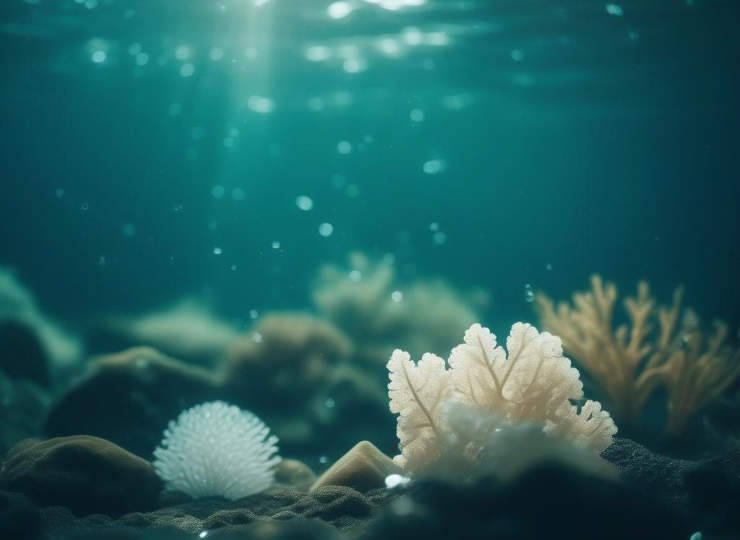文字のサイズ
- 小
- 中
- 大
Biodegradable plastics have been demonstrated to break down in deep waters
The University of Tokyo, the Japan Agency for Marine-Earth Science and Technology, Gunma University, the National Institute of Technology and Evaluation, the National Institute of Advanced Industrial Science and Technology, and the Japan Bioplastics Association have demonstrated that various biodegradable plastics (excluding polylactic acid) can be degraded in deep water off Misaki, Kanagawa Prefecture (757 m depth), off Hatsushima, Shizuoka Prefecture (855 m depth), the Myojin Sea Hill near an underwater volcano in the Izu-Ogasawara island arc (1,292 m depth), the deep-sea plains of the Kuroshio Basin (5,503 m depth) and off Minami-Torishima Island (5,552 m depth), the easternmost point of Japan, all of which are the first places in the world where it has been shown to be degraded by microorganisms.

The surface of the biodegradable plastic was covered with countless micro-organisms, and it was observed that biodegradation progressed over time as rough bumps formed on the surface of the sample. The rate of biodegradation in deep water was also confirmed to be biodegradable at all deep sea depths, although the rate slows down with depth.
At a depth of approximately 1,000 m, calculations also estimate that plastic bags made from the biodegradable plastic used in this study biodegrade within three weeks to two months. In the present study, through bacterial flora analysis (16S rRNA gene amplicon sequencing and metagenomic analysis), we also succeeded in discovering a number of new degrading micro-organisms from the deep sea that can degrade the biodegradable plastic.
Furthermore, the discovered degrading micro-organisms have been found to inhabit various marine sediments around the world (Note 6), and it is thought that biodegradable plastics that have been proven to be degradable can be degraded in any deep sea in the world. The results of this research are expected to advance the research and development of biodegradable plastics as an excellent material that will contribute to the control of marine plastic pollution in the future.






